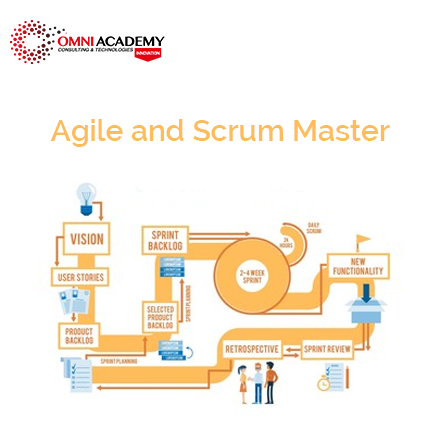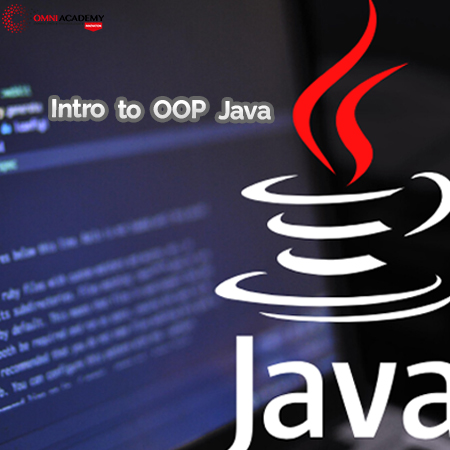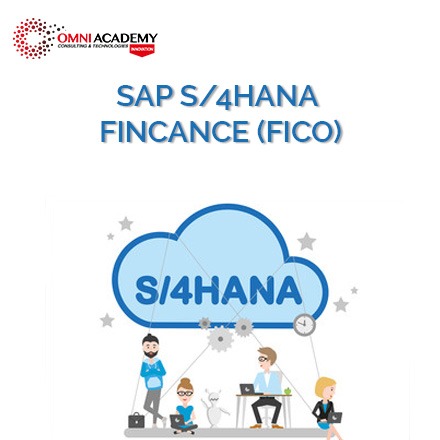Salesforce Developer – Platform Developer-II
The Salesforce Platform Developer II program is designed for individuals who would like to demonstrate their skills and knowledge in advanced programmatic capabilities of the Lightning Platform and data modeling to develop complex business logic and interfaces. The candidate can design, develop, test, and deploy programmatic solutions that are maintainable, reusable, and follow design patterns and object-oriented programming best practices.
Course Key Learnings
-
Understands the principles and best practices of Salesforce data modeling, interface design, code development, and testing, and can apply these principles in real-world development environments.
-
Is capable of defining appropriate solutions to meet specific business challenges/process requirements to extend/customize the platform by applying knowledge of declarative and programmatic features of the Lightning Platform.
-
Is competent in developing Apex code that will scale to large data sets and has a good understanding of platform behaviors, limits, and performance considerations.
-
Can build custom user interfaces to display and interact with Salesforce data using Lightning Web Components and Aura Components, advanced Visualforce, CSS, and JavaScript.
-
Is competent in tuning Visualforce pages and understands performance implications of the controller design.
-
Understands and applies best practices for general web and Salesforce-specific security concerns.
-
Can design and implement complex sharing models using declarative and programmatic methods.
-
Can design and implement a test plan that ensures adequate quality (for example; code coverage, application behaviors, scalability, environment independence, security) across application components.
-
Can deploy custom applications, has a broad understanding of the Salesforce development lifecycle, understands deployment tools, and knows when to apply each tool.
Course Outline
Salesforce Fundamentals: 5%
- Given a scenario, analyze the effects of using base-system objects such as sharing objects, history objects, metadata objects, multi-currency, and Chatter objects. (Salesforce Documentation: Sharing a Record Using Apex, Considerations for Enabling Multiple Currencies)
- Given a requirement, determine if a declarative or custom-coded solution should be implemented. (Salesforce Documentation: Benefits of Declarative Programming vs. Imperative Programming)
- Demonstrate knowledge of the localization features and capabilities and how they affect coding. (Salesforce Documentation: Localization, Translations)
Data Modeling and Management: 6%
- Given a scenario, identify and justify where Apex managed sharing should be used. (Salesforce Documentation: Understanding Apex Managed Sharing)
- Describe the use of cases for and benefits of external IDs. (Salesforce Documentation: Relating Records by Using an External ID)
- Identify use cases for different types of custom metadata and custom settings, and describe how to implement solutions for those use cases. (Salesforce Documentation: Custom Settings, Custom Metadata Types)
Logic and Process Automation: 20%
- Given a scenario, identify the considerations of interactions between multiple processes, both declarative and programmatic. (Salesforce Documentation: Identify Tools to Build Your App)
- Identify how an Apex method can be made available for use by Lightning Web Components. (Salesforce Documentation: Call Apex Methods)
- Given a scenario, propose and justify the optimal programmatic or declarative solution.
- Demonstrate knowledge of the best practices for writing Apex triggers. (Salesforce Documentation: Trigger and Bulk Request Best Practices)
- Describe the Apex features available for error handling and maintaining transactional integrity. (Salesforce Documentation: Error Handling Best Practices for Lightning and Apex, Exceptions in Apex)
- Identify the keywords used in a SOQL query and explain where they’re used in a query’s structure. (Salesforce Documentation: Salesforce Object Query Language (SOQL))
- Analyze a set of requirements and determine the benefits of using asynchronous Apex coding.. (Salesforce Documentation: Asynchronous Processing Basics)
- Given a scenario and requirements, identify the appropriate dynamic Apex feature to use in the solution. (Salesforce Documentation: Dynamic Apex)
User Interface: 19%
- Given requirements and code snippets for a Lightning Web Component or Aura Component and its Apex controller class, determine necessary changes to the Apex class. (Salesforce Documentation: Testing Custom Controllers and Controller Extensions)
- Describe the techniques for using Visualforce to perform actions and partial page refreshes, and asynchronous operations (Salesforce Documentation: Implementing Partial Page Updates with Command Links and Buttons)
- Given a scenario, identify best practices for displaying errors in the user interface.
- Given a set of requirements, select the appropriate Lightning Web Component, Aura Component, or Visualforce solution and describe its benefits. (Salesforce Documentation: Use Lightning Components in Lightning Experience, Dynamic Lightning Pages)
- Given requirements and code snippets for resources in a Lightning Web Component or Aura Component bundle, determine necessary changes to the component. (Salesforce Documentation: Component Bundles, Lightning Bundle Configurations Available in the Developer Console)
- Given a scenario, describe the aspects of Lightning Web Components or Aura Components that can be used to cause elements in a component’s markup to display in a responsive manner based on a device’s form factor.
- Given a scenario, implement the correct method to communicate events through Lightning Web Components or Aura Components. (Salesforce Documentation: Communicating with Events)
- Given a scenario, describe how to configure a Lightning Web Component or Aura Component to be displayed in a modal dialog using declarative configuration. (Salesforce Documentation: Configure Components for Lightning Pages and the Lightning App Builder)
- Describe the purpose and benefit of static resources in Visualforce, Lightning Web Components, and Aura Components. (Salesforce Documentation: Use Static Resources)
Performance: 16%
- Identify the common performance issues for user interfaces and demonstrate knowledge of techniques and tools to mitigate them. (Salesforce Documentation: Lightning Knowledge)
- Given a scenario, choose the appropriate logic and query structure to maximize application performance and handle large data volumes. (Salesforce Documentation: Working with Very Large SOQL Queries)
- Analyze a given scenario and determine performance improvements that can be achieved with an asynchronous callout. (Salesforce Documentation: Process for Using Asynchronous Callouts)
- Select scenarios where code reuse is applicable and how the reuse should be implemented. (Salesforce Documentation: Learn About Code Reuse and Apex Controllers)
- Given sample code, identify inefficiencies, and demonstrate the ability to resolve them. (Salesforce Documentation: Optimize Lightning Experience Performance)
Integration: 15%
- Given a set of requirements, apply the programmatic techniques and platform features for inbound communication. (Salesforce Documentation: Platform Events and the Salesforce Enterprise Messaging Platform, Using Salesforce Features with Apex)
- Given a scenario, apply programmatic techniques and platform features for outbound communication.
- Given a set of requirements, choose the appropriate integration technique. (Salesforce Documentation: Integrating with the Salesforce Platform in Lightning Experience)
- Describe the techniques and benefits of using External IDs for data integration. (Salesforce Documentation: Relating Records by Using an External ID)
Testing: 14%
- Apply techniques and tools for testing Apex classes and triggers. (Salesforce Documentation: Testing Apex)
- Apply techniques and tools for testing Visualforce controllers and controller extensions. (Salesforce Documentation: Testing Custom Controllers and Controller Extensions)
- Given a scenario or Apex tests that are not performing as expected, apply techniques and tools to isolate and identify the issues. (Salesforce Documentation: Testing Your Changes)
Debug and Deployment Tools: 5%
- Given a scenario, Apex code, or trigger that is not performing as expected, apply techniques and tools to isolate and identify the issues. (Salesforce Documentation: Testing Best Practices)
- Given a scenario, formulate the deployment process, supporting tools, and mechanisms. (Salesforce Documentation: Tools for Developing and Deploying Changes, Deploy Your Changes)
- Given a scenario or sample of JavaScript code, identify issues to resolve errors and use best practice patterns.
About the Exam
Read on for details about the Salesforce Platform Developer II exam.
- Content: 60 scored, multiple-choice/multiple-select questions and up to 5 non-scored questions
- Time allotted to complete the exam: 120 minutes
- Passing score: 70%
- Registration fee: USD 200, plus applicable taxes as required per local law
- Retake fee: USD 100, plus applicable taxes as required per local law
- Delivery options: Proctored exam delivered onsite at a testing center or in an online proctored environment.
- References: No hard-copy or online materials may be referenced during the exam.
- Prerequisite: Salesforce Platform Developer I credential

-
- Salesforce Administrator I Exam Dump
- Salesforce Administrator-II Exam Dump
- Salesforce Certified Sales Cloud Consultant (SU18) Exam Dumps Prep Practice Test
- Administration Essentials for Experienced Admin Exam Dumps Prep Practice Test
- Salesforce Certified Sales Cloud Consultant
- Salesforce Certified Administrator
- Salesforce Certified Platform Developer
- Find More Exam Dumps
Job Interview Questions & Answers
- Salesforce Job Interview Question
- Job Interview Checklist
- General Job Interview Questions
- What to Wear for Best Job Interview Attire
- Behavioral Interview Questions
- Job Interview Best Tips
- Software Engineering Jobs Interview Questions and Answers
- Information Technology (IT) Job Interview Questions
International Student Fee 750 USD
Job Interview Preparation (Soft Skills Questions & Answers)
- Tough Open-Ended Job Interview Questions
- What to Wear for Best Job Interview Attire
- Job Interview Question- What are You Passionate About?
- How to Prepare for a Job Promotion Interview
Stay connected even when you’re apart
👬🏻Join our WhatsApp Channel – Get discount offers
🧮 500+ Free Certification Exam Practice Question and Answers
Internships, Freelance and Full-Time Work opportunities
👫🏻 Join Internships and Referral Program (click for details)
👫🏻 Work as Freelancer or Full-Time Employee (click for details)
Flexible Class Options
- Week End Classes For Professionals SAT | SUN
- Corporate Group Trainings Available
- Online Classes – Live Virtual Class (L.V.C), Online Training
Related Courses
Salesforce Administrator-I Exam Dump
Cloud Computing Diploma – AWS Azure Google Cloud (All-in-One)
Google Professional Cloud Developer
Google Cloud Certified Professional Cloud Architect
AWS Training – AWS Certified Associate + Professional (2 in 1)
Microsoft Azure Administrator – Associate
Oracle Cloud Infrastructure Architect Associate






